VSS Workshop for PhD Students and Postdocs:
|
 Eriko Self Eriko SelfEriko is a Professor and the Department Chair of Psychology at California State University, Fullerton. She is interested in the mechanisms governing visual perception and attention. Her recent projects include various factors that influence attentional control such as aging, motivation, and personality traits using psychophysical methods. As the chair of a department that holds 2,200 undergraduate majors, 100 master’s program students, and 80 full-time and part-time faculty members, she enjoys taking care of everyone in the department. |
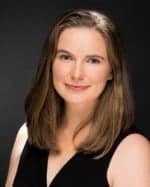 Katherine Moore Katherine MooreKatherine Moore is an Assistant Professor at Arcadia University, a comprehensive university in greater Philadelphia. Prior to Arcadia, she spent three years as a tenure-track professor at Elmhurst College. Katherine performs research collaboratively with undergraduates in her Attention, Memory, and Cognition laboratory, focusing on studies of visual attention, as well as music cognition and synesthesia. Prior to her faculty appointments, Katherine received her PhD from the University of Michigan and completed postdoctoral research at Yale University. |
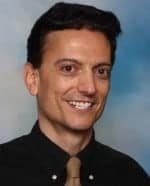 Nestor Matthews Nestor MatthewsNestor is an Associate Professor of Psychology and the Neuroscience Program Coordinator at Denison University. His psychophysical research program addresses issues in the spatial and temporal resolution of vision and attention, often probed by perceptual learning experiments. He has served on Denison’s tenure committee, tenure-appeals committee, and as Chair of the Denison University Faculty. He received his PhD in 1997 at Brown University and completed postdoctoral research at Columbia University before joining the Denison faculty in 2001. |
 Cathy Reed Cathy ReedCathy is a Professor of Psychology and Neuroscience at Claremont McKenna College. Using behavioral and electrophysiological measures, she investigates how vision, touch, and body position are integrated to influence perception, attention, object recognition, and emotional processing. Prior to joining the faculty at CMC in 2008, she spent 14 years as a member of the Psychology Department at the University of Denver. |
 Frank Tong Frank TongFrank Tong is a Professor of Psychology at Vanderbilt University. He is interested in understanding the fundamental mechanisms underlying visual perception, attentional selection, object processing, and visual working memory. He has received multiple awards for his research advances (including the VSS YIA award), for his work on fMRI decoding of visual and cognitive states. He particularly enjoys working with students and postdocs as they carve their path towards scientific discovery and independence, and currently serves as a VSS board member. |
VSS Workshop for PhD Students and Postdocs: So you want to start a lab?Sunday, May 15, 1:00 – 2:00 pm, Sabal/Sawgrass (Jacaranda Hall) OK, you got the job. Maybe it is the first job. Maybe it is the next job. In any case, you are moving and you are going to need to set up a new lab. How should you do that? What do you need to ask for? Where can you get help or advice? What are the biggest factors that go into the creation of a lab. Besides you and the ideas churning in your brain, you will need right people, projects, plans and backup plans if you are going to build a thriving lab culture. There will be mistakes and setbacks. How can those experiences be helpful, not discouraging? In this workshop, we will hear from four people with established labs. Bring your questions about negotiating the details with your new department, finding the right people for the new lab family, finding the funding to feed them and more. |
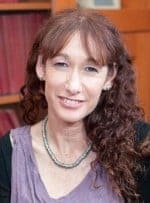 Kalanit Grill-Spector Kalanit Grill-SpectorKalanit is a Professor in the Department of Psychology and the Stanford Neurosciences Institute at Stanford University. She is interested in understanding the functional, structural, and computational neural mechanisms underlying high-level vision. She has received multiple awards for her research including the Sloan Research Fellowship in Neuroscience and the Klingenstein Fellowship in Neuroscience. She strongly believes in hands-on mentorship and in instilling computational habits. She will share perspectives from her own experience, starting a lab as a foreigner with two young children. |
 Nick Turk-Browne Nick Turk-BrowneNick is Associate Professor and Associate Chair in the Department of Psychology at Princeton University. He studies perception, attention, learning, and memory, and especially how all of these processes interact, using a combination of behavioral, neuroimaging, neuropsychological, and computational approaches. He has received the APA Distinguished Scientific Award for Early Career Contribution to Psychology and grant support from NIH, NSF, the Templeton Foundation, and Intel Labs. He feels like he is still building his lab, and looks forward to insights from the other panelists about how to do so. |
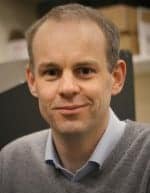 Andrew Welchman Andrew Welchman Andrew holds a Wellcome Trust Senior Fellowship and heads the Adaptive Brain Lab at the University of Cambridge. He works on 3D vision, perceptual learning and multisensory perception using behavior, modeling and imaging. He has a longstanding interest in facilitating individuals to develop their research careers from graduate students to fellows and junior faculty. He has established two new labs during his career and coordinated a European training network across labs. He has made plenty of mistakes and had lots of fun along the way. |
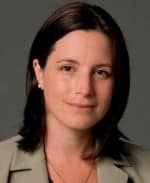 Ione Fine Ione FineDr. Fine obtained her undergraduate degree from Merton College Oxford and her PhD from the Department of Brain and Cognitive Sciences at the University of Rochester. She is currently a professor in the Department of Psychology and a co-Director of the Neuroimaging Center at the University of Washington. Her research focuses on the role of experience in sensory processing, including measuring performance in patients who were implanted with electrode retinal prostheses and examining the effects of long term blindness on the brain using a combination of behavioral measurements and magnetic resonance imaging. She is an elected Fellow of the Optical Society of America. |
 Jeremy Wolfe Jeremy WolfeJeremy Wolfe is Professor of Ophthalmology and Professor of Radiology at Harvard Medical School. He is Director of the Visual Attention Lab at Brigham and Women’s Hospital. His research focuses on visual search and visual attention with a particular interest in socially important search tasks in areas such as medical image perception (e.g. cancer screening), security (e.g. baggage screening), and intelligence. He serves on the Board of VSS and recently arranged to have the sink in his lab repaired – but he is merely moderating this session. |
